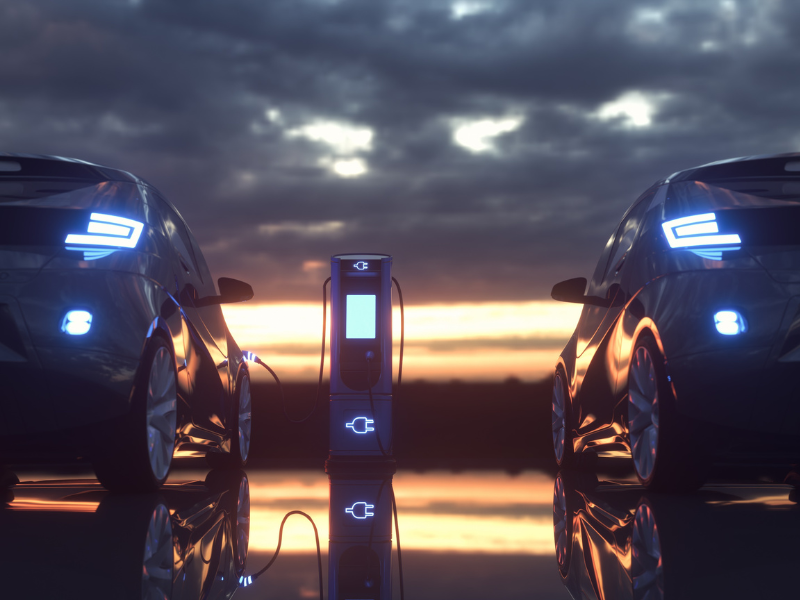California has de facto outlawed the crude oil industry in a few years – the supply chain for the products from crude oil to build the EV’s!
Without crude oil that is the basis for most of the products now in society, those citizens that are part of the 80 percent of the 8 billion on this planet earning less than $10 a day, which is more than 6 billion on this earth, may never be able to enjoy the materialistic living styles of those in wealthier countries.
As California is attempting to lead the world toward no crude oil production, worldwide efforts to meet the supply chain demands of extracting 4 billion gallons of crude oil every day from this planet, there may be shortages and inflation in perpetuity to continue to make all the products of our materialistic society, being enjoyed by the current residents in the wealthier countries on this planet.
Meanwhile, the list of conundrums to California’s EV mandate is growing:
- Lack of sufficient number of buyers, outside the elite profile of existing EV owners
- The Governments’ lack of ethical, moral, and social responsibilities, by encouraging the social injustice of subsidies for well-off people who can afford EVs, continues exploiting the human rights of workers with yellow, brown, and black skin in the supply chain that are mining for exotic minerals and metals in poorer developing countries to support the green movement in wealthy countries.
- Conditions have grown so dire for the supply chain of raw materials needed for EV batteries that Washington is cracking down on EV components that have links to Chinese Uyghur slave labor that are helping to build EV’s.
- Due to EV battery fire potentials, questionable means of transporting EV’s from foreign manufacturers to the USA consumers.
- Concerns about occasional electricity from wind and solar being able to charge EV batteries.
- The limited life of the EV battery compared with conventional vehicles, the limitations of EVs during emergencies such as fires, floods, and power blackouts.
- China restricting exports of graphite, a key mineral used for making EV batteries.
- Auto makers will continue to face challenging supply chain issues to make all the parts and components of EV’s as the supply of oil derivatives manufactured from crude oil will be in shorter supply. The typical car today is made with about 260 pounds of plastics.
The crude oil industry’s time in California is limited, and the oil-refining industry is behaving as any industry would in comparable circumstances, by transitioning its operations away from gasoline to activities that will prove to be more profitable in the long run. And as crude oil supply falls further, much higher gasoline prices will become a way of life for Californians, as the conundrums associated with EV mandates may be growing.
Standard economic logic indicates that high California gas prices should encourage fuels supply to be shipped to California from other states. But this doesn’t happen because no other state formulates California’s unique gasoline blend.
In addition, the West Coast fuels market is isolated from other supply/demand centers as California is an energy island. The Sierra Mountains are a natural barrier that prevents the state from pipeline access to any of that excess oil. As such, the West Coast is susceptible to unexpected outages from West Coast refineries as it is unable to refill an unexpected loss in supply by quickly supplying additional products from outside of the region.
If gasoline is imported into California, which does occur when a California refinery goes offline for repair or maintenance, California typically imports gasoline via marine shipments, which usually take three to four weeks to deliver. To meet the demands of the fourth largest economy in the world imports of gasoline into California come from sources that include India, South Korea, the United Kingdom, Russia, and New Brunswick, Canada. This process is expensive and takes weeks for the fuel to arrive at California ports.
California’s regulatory and tax landscape has led to a steady drop in the number of California refineries. In the early 1980s, when California’s population was 24 million, there were 40 operating refineries in the state, which refined over 2.5 million barrels of crude oil per day. Forty years later, with a population of 39 million, the number of refineries dropped by 14, which refines less than 2 million barrels of crude oil per day currently. The reality is that gasoline and diesel supply is decreasing while demand is increasing, is fuel (no pun intended) for continuous price increases.
Refineries are also shutting down because California has imposed a new regulation that bans the sale of gas-powered cars and light trucks by 2035 and the State requires 35 percent of new car sales to be zero-emission vehicles by 2026. It makes no economic sense to invest in new capacity in a state that has de facto outlawed the industry’s existence in a few years.
In addition, refineries are also shutting down because there are incredibly lucrative state and federal tax incentives to produce biofuels, totaling a whopping $1 per gallon, and cease the manufacturing of gasoline and diesel. A Marathon refinery that had a crude oil refining capacity of 166,000 barrels per day is being retrofitted to produce biodiesel and is expected to be producing biofuel next year. Similarly, Global Clean Energy is converting a 66,000-barrel-per-day-capacity refinery in Bakersfield to biodiesel, and World Energy has invested $350 million to convert a 50,000-barrel-per-day-capacity refinery to biodiesel.
California regulators and legislators are getting what they want: less crude oil produced and consumed. And Californians, particularly low- and middle-income households, are paying a dear price for the preferences of those Tesla-driving legislators and regulators as fuel demand remains against a diminishing supply of gasoline and diesel.
You cannot build something from nothing. Thus, the California’s EV conundrums will most likely grow as everything that needs electricity, and every infrastructure, has parts and components that are made from oil derivatives manufactured from crude oil, from the light bulb to the iPhone, defibrillator, and all the parts of toilets, spacecraft, and EV’s.





